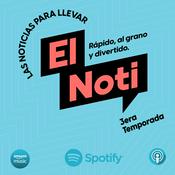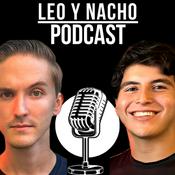44 episodios

American Chestnut Revival on A Scientist’s Land In Maine
21/11/2025 | 26 min
Send us a textA celebrated naturalist’s Maine hillside holds thousands of wild American chestnuts thriving across three generations, challenging the claim that the species cannot return without genetic engineering. We explore the history of blight, restoration strategies, climate shifts, and why evidence from the field matters.• origins of the blight and early containment attempts• limits of Chinese hybrid chestnuts in forest settings• selective breeding for American traits with blight tolerance• push for GE chestnuts and its one-gene promise• documented natural resurgence on Bernd Heinrich’s land• seed dispersal by birds and squirrels across miles• published mapping, burr counts, and multi‑generation stands• climate change moving the chestnut range north• reports of wild chestnuts in gap openings across the Northeast• missteps and credibility issues in GE field trials• how to see the documentary and share chestnut sightingsPremieres December 4 at thewildamericanchestnut.org. “People can go there, sign up for the movie, and share your chestnut story.”Support the show

Kollapse Kamp with Dr. Tadzio Mueller
26/9/2025 | 50 min
Send us a textDespite escalating climate disasters across the Global North - from deadly floods in Germany to devastating hurricanes in the United States - we're witnessing alarming rightward shifts instead of rational policy responses. Countries experiencing climate catastrophes also often elect their most conservative governments shortly afterward, which suggests our traditional assumption that climate impacts drive climate action has fundamentally failed.Tadzio Mueller, a prominent global climate activist, sees collapse as inevitable but also sees a future worth organizing for. On this episode of Breaking Green, Mueller describes what he calls the Just Collapse Movement.Text GIVE to 17162574187 to support Breaking Green's work lifting up the voices of those protecting forests, defending human rights and exposing false solutions.Support the show

The Marshall Islands: Between Nuclear Colonialism and Climate Crisis with Shem Livai
20/8/2025 | 22 min
Send us a textThe Marshall Islands face dual threats from the legacy of U.S. nuclear testing and the advancing impacts of climate change, creating an urgent struggle for justice and survival.On this episode of Breaking Green we are going to speak with Shem Livai.Shem Livai is a Director at Marshalls Energy Company in the Marshall Islands. He is a Ph.D. candidate in Creative Leadership for Innovation and Change from the University of the Virgin Islands, he has an MBA from the University of the South Pacific, and a B.S. in Mechanical Engineering from the University of Hawai‘i. Text GIVE to 17162574187 to support Breaking Green's work lifting up the voices of those protecting forests, defending human rights and exposing false solutions.Support the show

When Arctic Climate "Solutions" Become Colonial Experiments with Panganga Pungowiyi
06/6/2025 | 49 min
Send us a textPanganga Pungowiyi, an Indigenous mother and climate geoengineering organizer from Sibokuk in the Dena'ina Islands, shares her community's historical trauma and resistance against experimental climate technologies deployed without consent. Her powerful testimony reveals how colonial patterns of exploitation continue today through geoengineering experiments that ignore Indigenous sovereignty and knowledge systems.• Military contamination during the Cold War left lasting environmental damage and health impacts including cancer and Parkinson's disease• Climate geoengineering experiments are being conducted in Indigenous territories without free, prior and informed consent• Researchers spread silica beads on Arctic ice • Carbon capture technologies primarily benefit fossil fuel companies through enhanced oil recovery rather than addressing climate change• Indigenous cosmovision views humans as part of nature, not above it, making ecosystem manipulation fundamentally problematic• Outside researchers fail to understand Arctic ecosystems, where ice movement and marine life cycles would be disrupted by interventions• True climate solutions require addressing oppression and restoring Indigenous rights rather than technological quick-fixesText GIVE to 17162574187 to support Breaking Green's work lifting up the voices of those protecting forests, defending human rights and exposing false solutions.Support the show

Mapuche Ancestral Rights and Political Prisoners in Chile's Wallmapu - with Anne Petermann
16/4/2025 | 36 min
Send us a textThe Mapuche people of Chile are fighting to reclaim ancestral lands taken over by vast industrial eucalyptus and pine plantations established during the Pinochet dictatorship in the 1970s. Their struggle goes beyond land ownership—it's about reclaiming culture, spirituality, language, and food sovereignty while facing criminalization under Chile's new "usurpation law."• Mapuche territory (Wallmapu) was initially protected by treaty but later seized through what the Chilean government called "pacification of the Araucanía" • Industrial tree plantations have destroyed native ecosystems, depleted water resources, and created conditions for devastating "megafires" and "gigafires"• Chilean authorities use "preventative prison" to hold Mapuche activists for up to two years without formal charges or trials• Militarization of Mapuche territories has led to surveillance, intimidation, and targeting of young activists• The controversial "usurpation law" criminalizes land reclamation efforts, violating international indigenous rights agreements Chile has ratified• The struggle connects to broader patterns of indigenous land theft for industrial tree plantations under dictatorships globally• Land reclamation is essential for Mapuche cultural revival and addressing extreme poverty On this episode of Breaking Green, we spoke with Anne Petermann. Petermann co- founded Global Justice Ecology Project in 2003. She is the international coordinator of the Campaign to STOP GE Trees, which she also co founded. Petermann is a founding board member of the Will Miller Social Justice Lecture Series. She has been involved in movements for forest protection and indigenous rights since 1991, and the international and national climate justice movements since 2004. She participated in the founding of the Durban group for climate justice in 2004, in Durban, South Africa, and Climate Justice Now in 2007 at the Bali Indonesia UN climate conference. She was adopted as an honorary member of the St. Francis- Sokoki band of the Abenaki in 1992 for her work in support of their struggle for state recognition. In 2000, she received the wild nature award for activist of the year.Photo by Orin Langelle.For more information visit: https://globaljusticeecology.org/brazil-2023/This podcast is produced by Global Justice Ecology Project.Breaking Green is made possible by tax deductible donations from people like you. Please help us lift up the voices of those working to protect forests, defend human rights and expose false solutions. Donate securely online hereOr simply text GIVE to 716-257-4187Support the show
Más podcasts de Noticias
Podcasts a la moda de Noticias
Acerca de Breaking Green
Escucha Breaking Green, Así las cosas con Carlos Loret de Mola y muchos más podcasts de todo el mundo con la aplicación de radio.net

Descarga la app gratuita: radio.net
- Añadir radios y podcasts a favoritos
- Transmisión por Wi-Fi y Bluetooth
- Carplay & Android Auto compatible
- Muchas otras funciones de la app
Descarga la app gratuita: radio.net
- Añadir radios y podcasts a favoritos
- Transmisión por Wi-Fi y Bluetooth
- Carplay & Android Auto compatible
- Muchas otras funciones de la app


Breaking Green
Descarga la app,
Escucha.





































